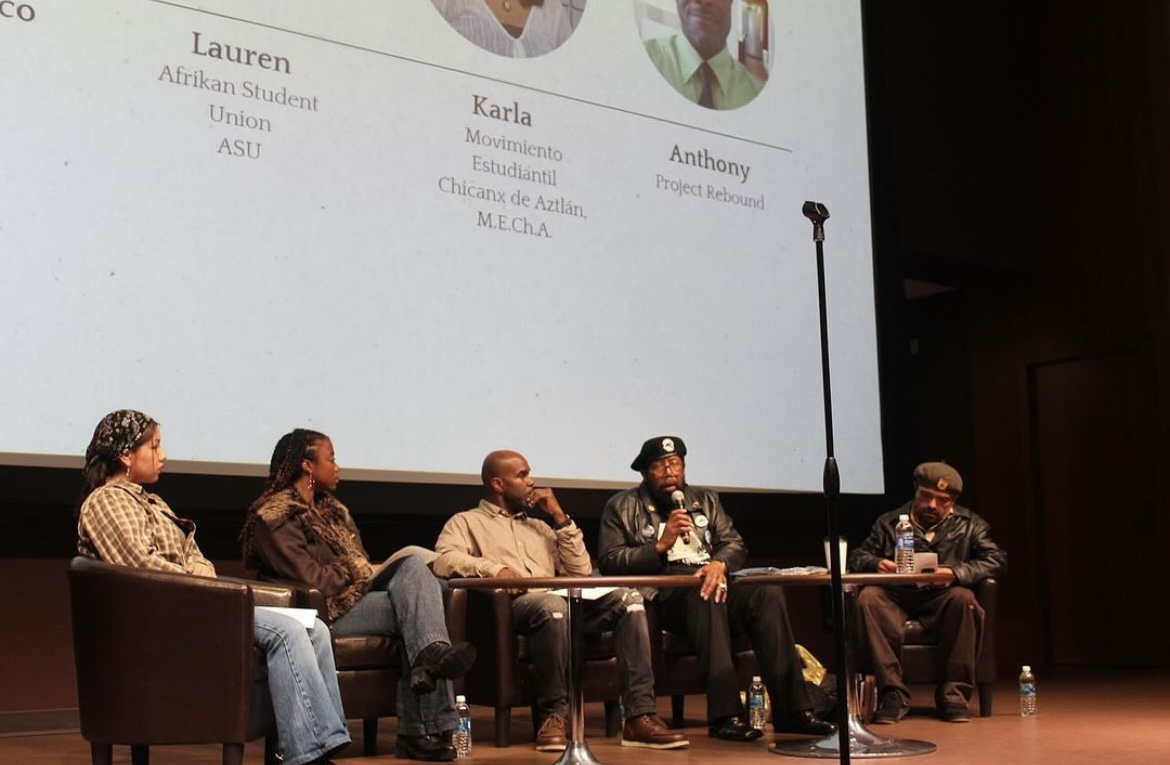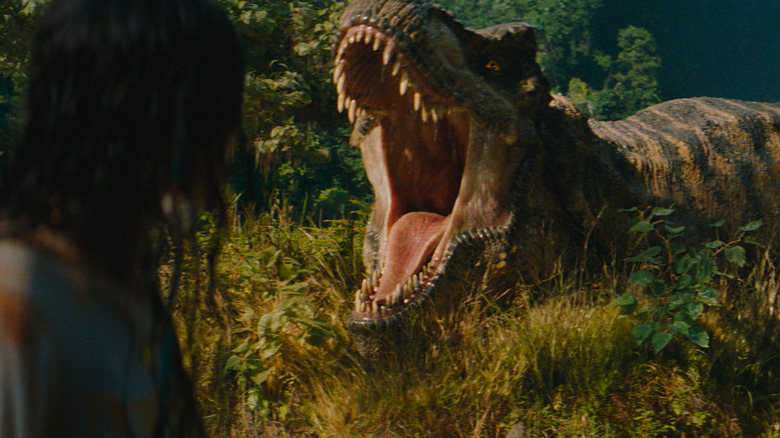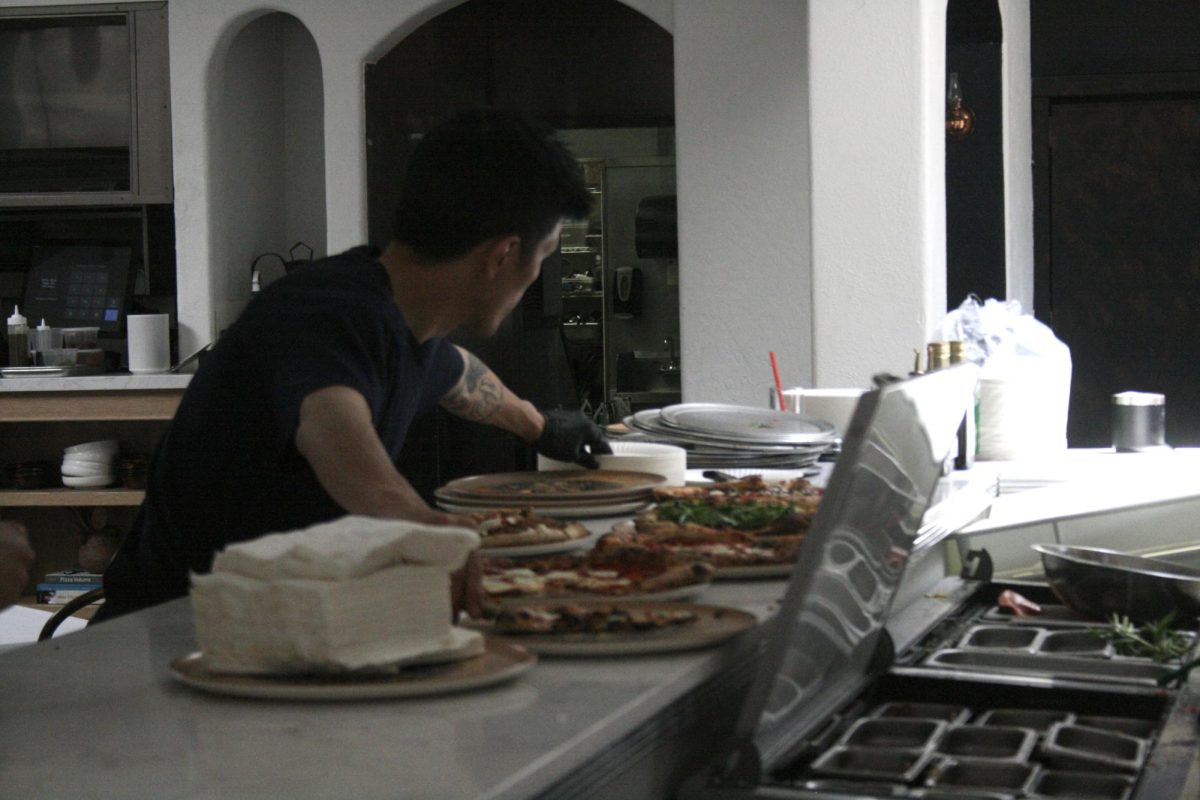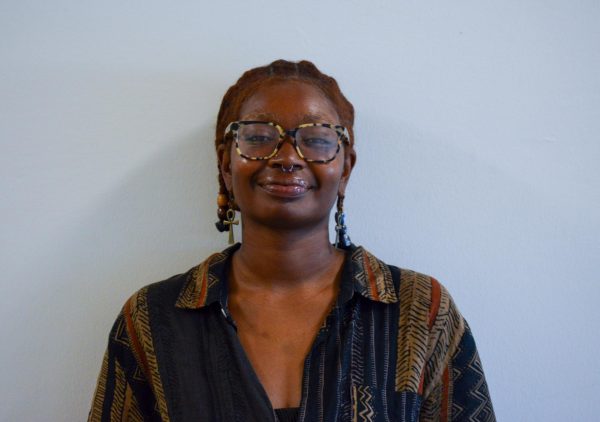San Diego State’s Black Resource Center and Latinx Resource Center hosted an enlightening conversation on Black and brown unity in the local community.
In celebration of the BRC’s theme for the month, Umoja (standing for unity Swahili), the center united members of two of San Diego’s historic activism groups for a discussion with students.
The panel featured Commondante David M. Rico as a representative of the Brown Berets de Atzlan and Chairman Henry Lee Wallace V of the San Diego Original Black Panther Party for Community Empowerment. The first-of-its-kind conversation explored complex topics, including social issues and the under-discussed history of San Diego.
The two organization representatives spoke with student moderators from SDSU’s Black and Latinx communities respectively, along with a representative for formerly incarcerated students at Project Rebound.
The panel created a space for students of color to engage with revolutionary ideas and spotlight San Diego’s under-discussed history of activism.
Chairman Wallace introduced himself and his important contributions to the fight for equality, tracing the work of the San Diego chapter back to its founding in 1967.
“The San Diego Original Black Panther Party for Self Defense was created from San Diego State College in 1967 (by) my sister, Shirley, and her boyfriend,” Wallace said. “They created the party in which my family joined. I was 15 years old.”
He discussed the conditions in San Diego that led to his passion for activism and working toward safety in his community.
“We was in a place at that time when San Diego wasn’t too kind to people of color,” said Wallace when reflecting on his motivations for getting into activism.
Rico, who has been a Brown Berets de Aztlán member since he was 17, stressed the importance of social outreach and community.
Rico urged for students to connect with their communities and use education to further the growth of local movements.
“You gotta connect back to your community,” he said. “Whatever you learned, go back and share it with your family.”
Members from the BRC and LRC emphasized their self-defense-based initiatives on countering social issues that are impacting both Black and brown communities.
In San Diego, the ‘50s and ‘60s were marked with police brutality, immigration and mass incarceration for Black and Latinx communities. Although the city has evolved in its inclusivity, Rico and Wallace encourage students to educate themselves on the ongoing fight for human rights.
“I’m 72 years old right now and I’m still fighting for you and me,” Wallace said. “Because I don’t want my family to go through what we went through in the ‘50s.”
“We are still here and people need to know the history,” Rico added.
Despite the many strides the organizations have made, the groups brought to light on how the San Diego area still needs to come together.
“The value that we still hold onto is unity,” Rico said. “We need to support each other. We need to unite because people are still getting killed by the police and nothing is happening about it.”
As the conversation unfolded and moved on to a student-led Q&A, there was a resounding message that urged the people in the audience to unite in the common goal of forging change.
Wallace touched on the continued outreach the San Diego Black Panthers do in collaborating on food programs. Rico emphasized how his work with the Brown Berets continued to support communities. They discussed a combined project effort, where the Brown Berets extended the Black Panthers mission of distributing free food in the area down to Barrio Logan.
“The only way we can win is to stay together,” Wallace said. “We as a people need to be there.”
They left students with inspiring words and a call to action.
“You guys are all Brown Berets, potential Brown Berets,” Rico said. “Every single one of you. Every single one of you is a potential Black Panther.”
The event offered a time for students to discuss the real issues that were important to them with veterans of historic movements. The discussion allowed students to delve into a new generation of activism with new emphasis on intersectionality and inclusiveness. They stressed Black and brown unity as a form of resistance against the system and work toward collective liberation.
“I don’t separate us,” Rico said. “I think we’re all in this together and we need to work together.”
Wallace also shared the same sentiments for students.
“You are our future,” he said. “And as you progress and move into the system, you should go in there and make changes.”
As far as events for the rest of February, the BRC is creating spaces that stress uniting and building community to represent the value of Umoja.
“I’m really excited for the emphasis on unity in between our different marginalized communities,” said Jada Reed, a third-year student and BRC organizer. “Just continuing that unity and extending it past Black and brown unity to further communities.”
For more information on the Black Resource Center, visit here.








